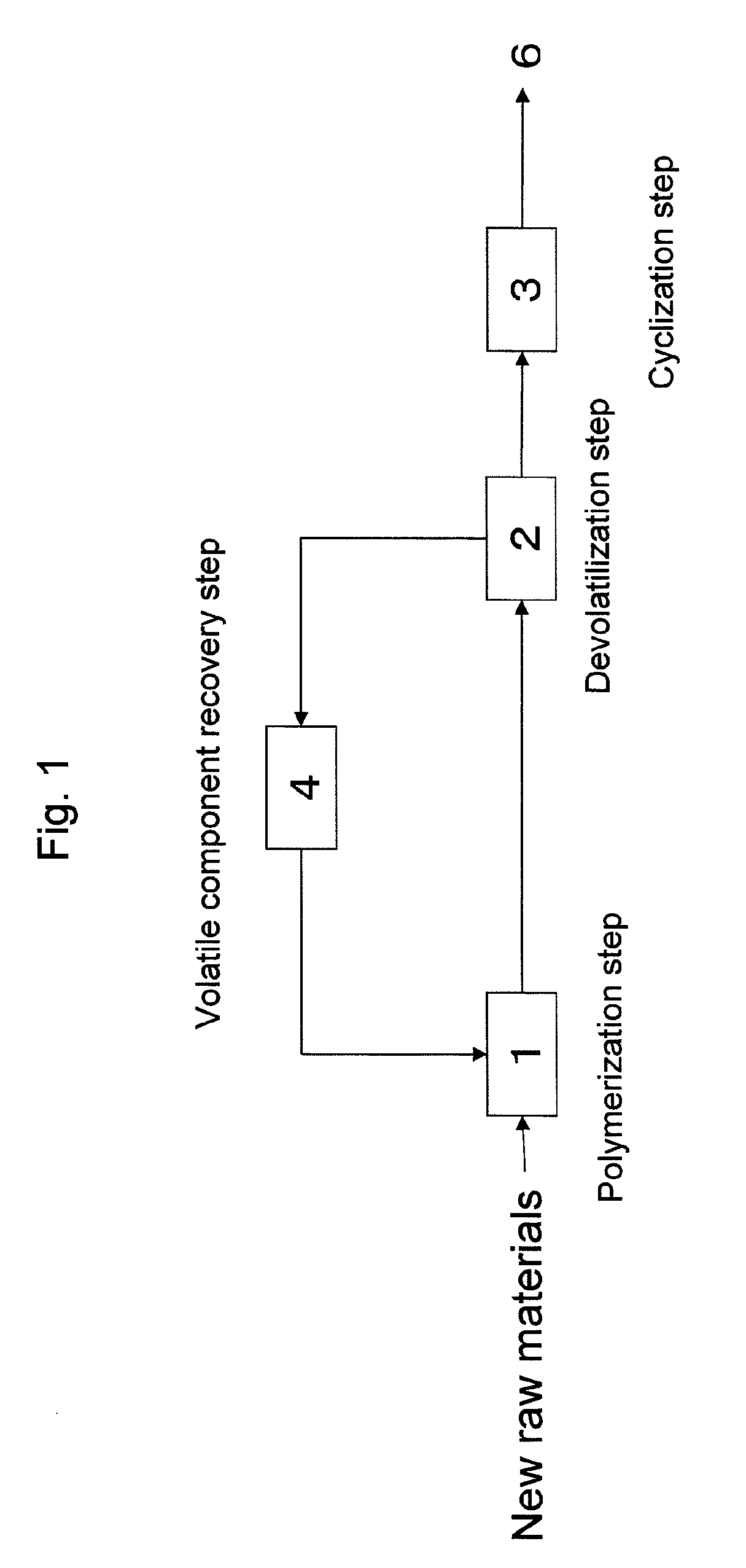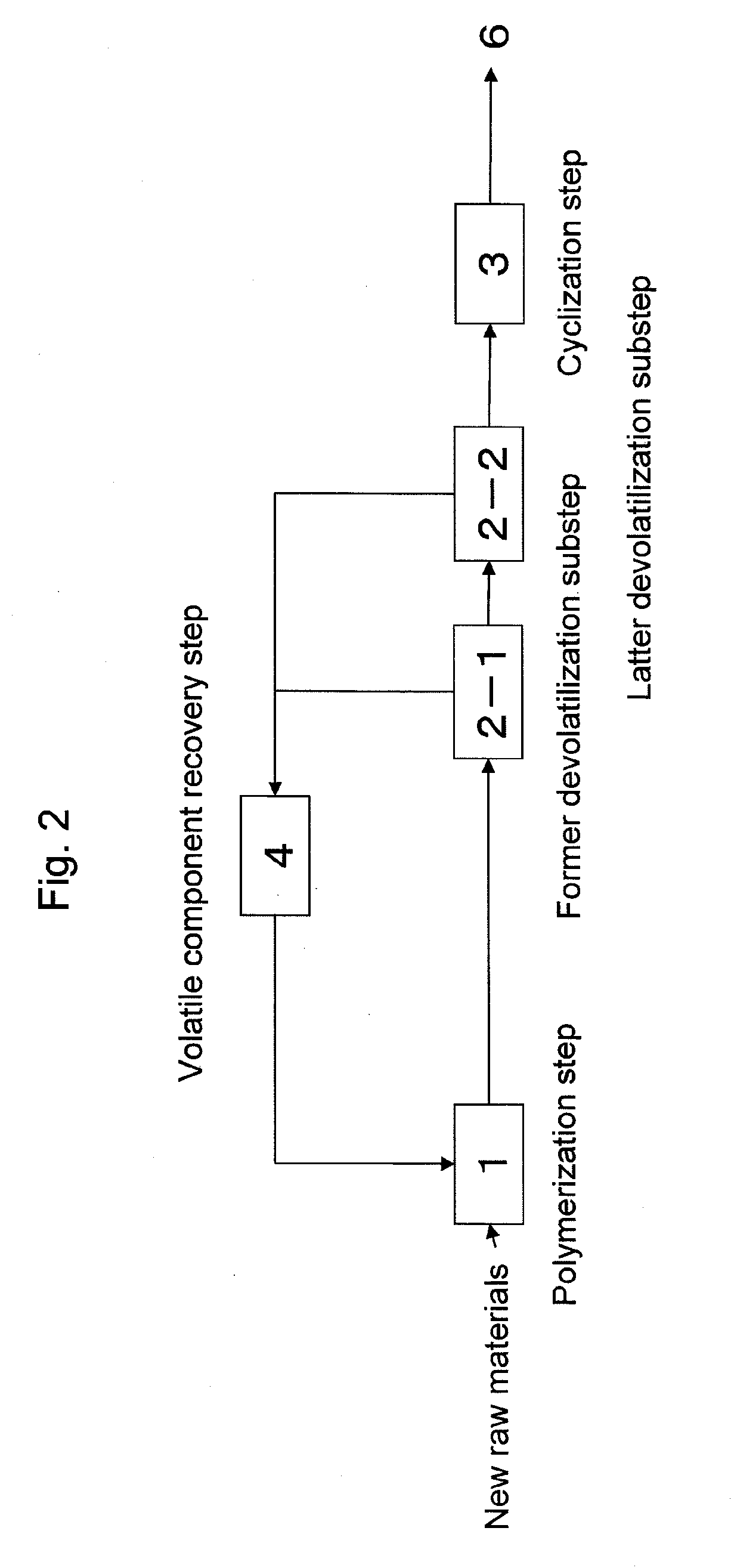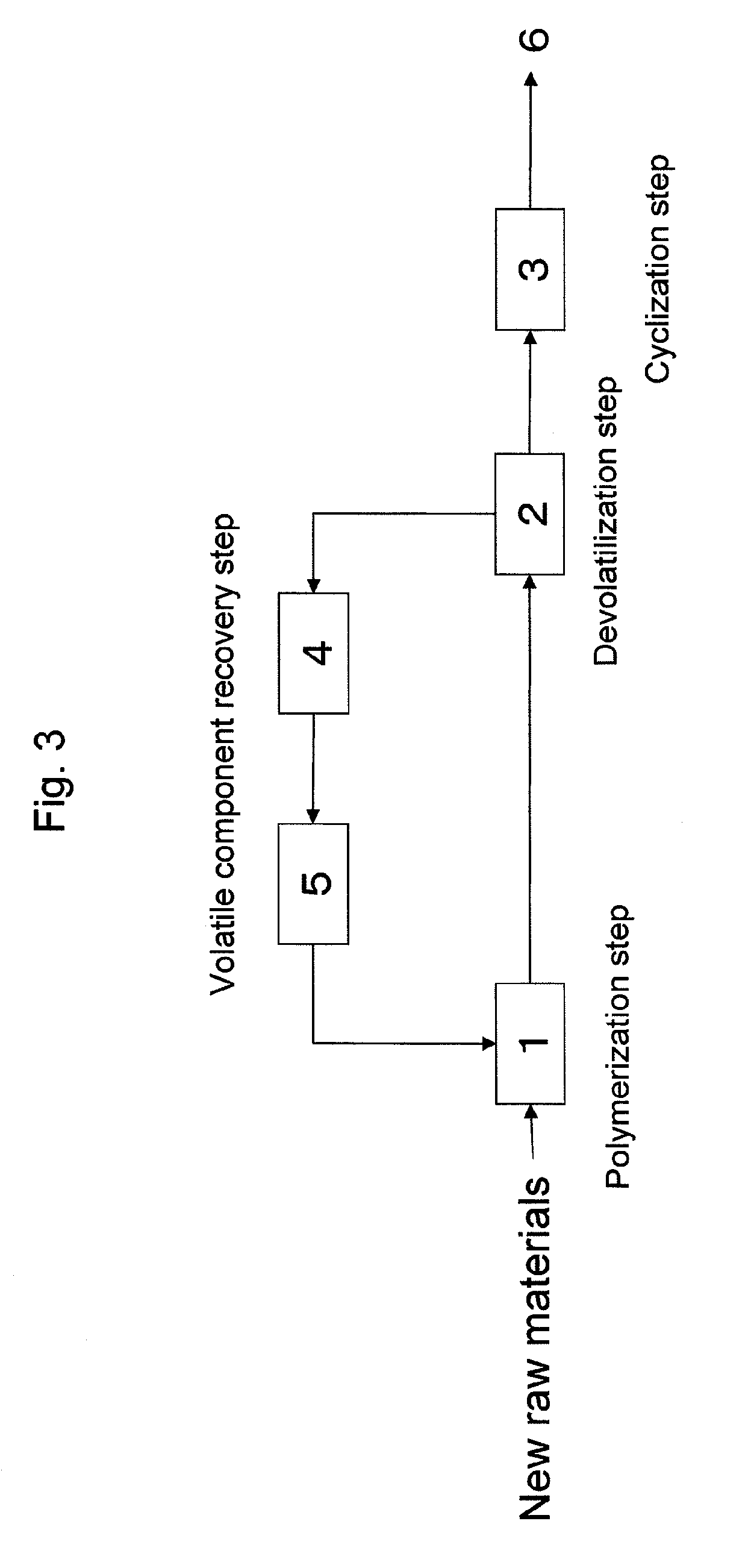Process for production of thermoplastic copolymer
a thermoplastic and copolymer technology, applied in the field of thermoplastic copolymer production, can solve the problems of low moldability, low reactivity of maleimide monomer, and insufficient heat resistance of pmma resin,
- Summary
- Abstract
- Description
- Claims
- Application Information
AI Technical Summary
Benefits of technology
Problems solved by technology
Method used
Image
Examples
example 1
Polymerization Step: Continuous Bulk Polymerization Method
A stainless steel autoclave having a capacity of 20 liters and double helical stirring blades was continuously supplied with the following monomer mixture bubbled by 20 L / min of nitrogen gas for 15 minutes at a rate of 8 kg / h, and the mixture was stirred at 50 rpm with the inner temperature controlled at 130° C. for an average retention time of 3 hours, for being continuously polymerized. The obtained copolymer solution (a) was sampled and analyzed. As a result, the polymerization percentage was 60%, and the content, namely, solid content of the copolymer (A) in the copolymer solution (a) was 60 wt %. Further, the viscosity of the obtained copolymer solution (a) was measured at 30° C. and found to be 60 Pa□s.
Methacrylic acid30parts by weightMethyl methacrylate70parts by weight1,1-di-t-butyl peroxy cyclohexane0.05part by weightn-dodecyl mercaptan0.3part by weight
Devolatilization Step
In succession, the copolymer solution (a) ob...
examples 2 to 7
Continuous Bulk Polymerization and Continuous Solution Polymerization
Thermoplastic copolymers (B-2) to (B-7) were continuously produced and unreactive monomers and organic solvent (C) were recovered according to the same method as described in Example 1, except that the composition of raw materials and the production conditions in the respective steps of polymerization, devolatilization and cyclization were changed as shown in Tables 1 and 2. The evaluation results of the obtained thermoplastic copolymers (B) are shown in Table 3.
example 8
Polymerization Step: Continuous Solution Polymerization Method
A stainless steel autoclave having a capacity of 20 liters and double helical stirring blades was continuously supplied with the following raw material mixture bubbled by 20 L / min of nitrogen gas for 15 minutes at a rate of 8 kg / h, and the mixture was stirred at 50 rpm with the internal temperature controlled at 130° C. for an average retention time of 3 hours, for being continuously polymerized. The obtained copolymer solution (a) was sampled and analyzed. As a result, the polymerization percentage was 77% and the content, namely, solid content of the copolymer (A) in the copolymer solution (a) was 50 wt %. Further, the viscosity of the obtained copolymer solution (a) was measured at 30° C. and found to be 50 Pa·s
Methacrylic acid30parts by weightMethyl methacrylate70parts by weightMethyl ethyl ketone66parts by weight1,1-di-t-butyl peroxy cyclohexane0.1part by weightn-dodecyl mercaptan0.3part by weight
Devolatilization Ste...
PUM
| Property | Measurement | Unit |
|---|---|---|
| temperature | aaaaa | aaaaa |
| pressure | aaaaa | aaaaa |
| temperature | aaaaa | aaaaa |
Abstract
Description
Claims
Application Information
 Login to View More
Login to View More - R&D
- Intellectual Property
- Life Sciences
- Materials
- Tech Scout
- Unparalleled Data Quality
- Higher Quality Content
- 60% Fewer Hallucinations
Browse by: Latest US Patents, China's latest patents, Technical Efficacy Thesaurus, Application Domain, Technology Topic, Popular Technical Reports.
© 2025 PatSnap. All rights reserved.Legal|Privacy policy|Modern Slavery Act Transparency Statement|Sitemap|About US| Contact US: help@patsnap.com



